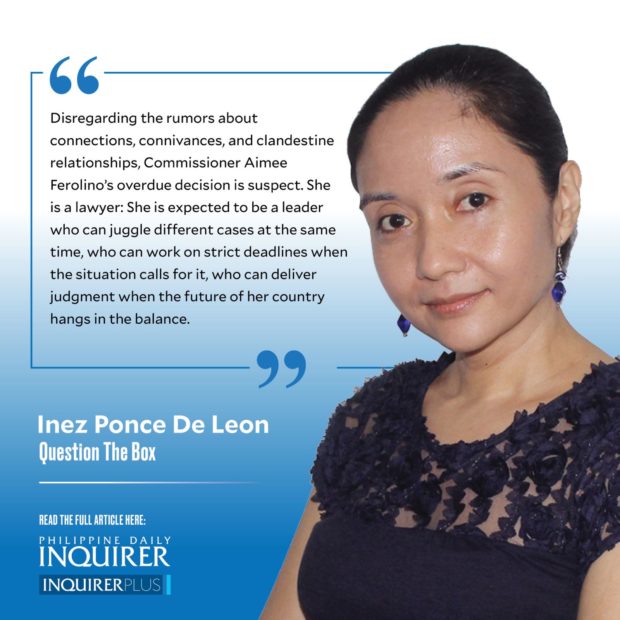The beauty of deadlines
I have always been strict with deadlines.
We were once asked to give our students flexible deadlines when online classes commenced. This was something I could not do: not for research classes where the requirements were built on each other; or dance classes where students could face serious injury if they didn’t pace themselves through modules; or science and risk communication classes that were stacked with readings and papers; or thesis classes where the students’ graduation was at stake.
So, I kept my strict mantra: no submission by the (reasonably placed) deadline, no grade.
This might sound cruel, but the rule helps students get their work done. They get milestones around which they can build their semester. They have structure in a world that has become replete with uncertainty. I will grant extensions only for extreme cases, and even negotiate when students have shown that they can produce better output if given just a few more days to work; but generally, I use deadlines to teach the students about how their work applies to real-world scenarios. Research grant deadlines do not wait. Failure to show up is failure to perform. Being late in the world of communication means failure to publish or failure to air. No thesis, no graduation.
The deadlines are also in place for me to balance my time in checking the students’ work. I return their submissions with feedback within 24 hours. I give them my effort, so I expect them to deliver as well. To meet a deadline is to be considerate.
Studies do show that giving students deadlines hones their ability to anticipate mistakes, plan for delays, and prioritize tasks. A strict deadline can help larger projects become more manageable; conversely, fluid deadlines can delay much larger projects into which smaller projects feed. Deadlines are in place so that people, whether they are students or employees, can complete their work, hold themselves accountable, and work with urgency.
I hope that my students will one day understand why I am so exacting when it comes to deadlines—or perhaps all they need to do is watch the news this week and wait for Commissioner Aimee Ferolino to finally hand in her decision regarding Ferdinand Marcos Jr.’s candidacy.
She issued a statement this week: in long, often convoluted sentences, she spoke about how Commissioner Rowena Guanzon was not her boss. She claimed that there was no deadline agreed upon, and that Guanzon had supposedly told her to work overtime so that her team could write the verdict by January 17th. Ferolino’s reasoning: she did not want to sacrifice the health and well-being of her staff. She also did not have her resolution ready because she had three other cases to write.
The entire statement sounded like an overdrawn excuse, which prompted Guanzon to criticize Ferolino for speaking too much and doing nothing. Indeed, had Ferolino used her time to write the resolution itself rather than explain her lateness, she would have been able to produce the 24-page document that Guanzon eventually published on social media. Even the Commission on Elections (Comelec) had to come to Ferolino’s rescue, but even its reassurances made it appear that the Comelec didn’t have its own deadlines—hardly a desirable trait in a government body in charge of the looming, increasingly stormy May 2022 elections.
Disregarding the rumors about connections, connivances, and clandestine relationships, Ferolino’s overdue decision is suspect. She is a lawyer: She is expected to be a leader who can juggle different cases at the same time, who can work on strict deadlines when the situation calls for it, who can deliver judgment when the future of her country hangs in the balance. Her claim of not wanting to sacrifice staff well-being is hard to believe, given that Guanzon’s team was able to come up with a well-written and precise resolution early. Her claim of having three other cases to resolve is no excuse, unless she is willing to admit that she works slowly and cannot think as quickly as other lawyers can when confronted with evidence.
See, that’s the beauty of a deadline: It teaches the apprentices to work efficiently, and shows us whether the so-called masters are the best fit for their current positions.
—————-
















